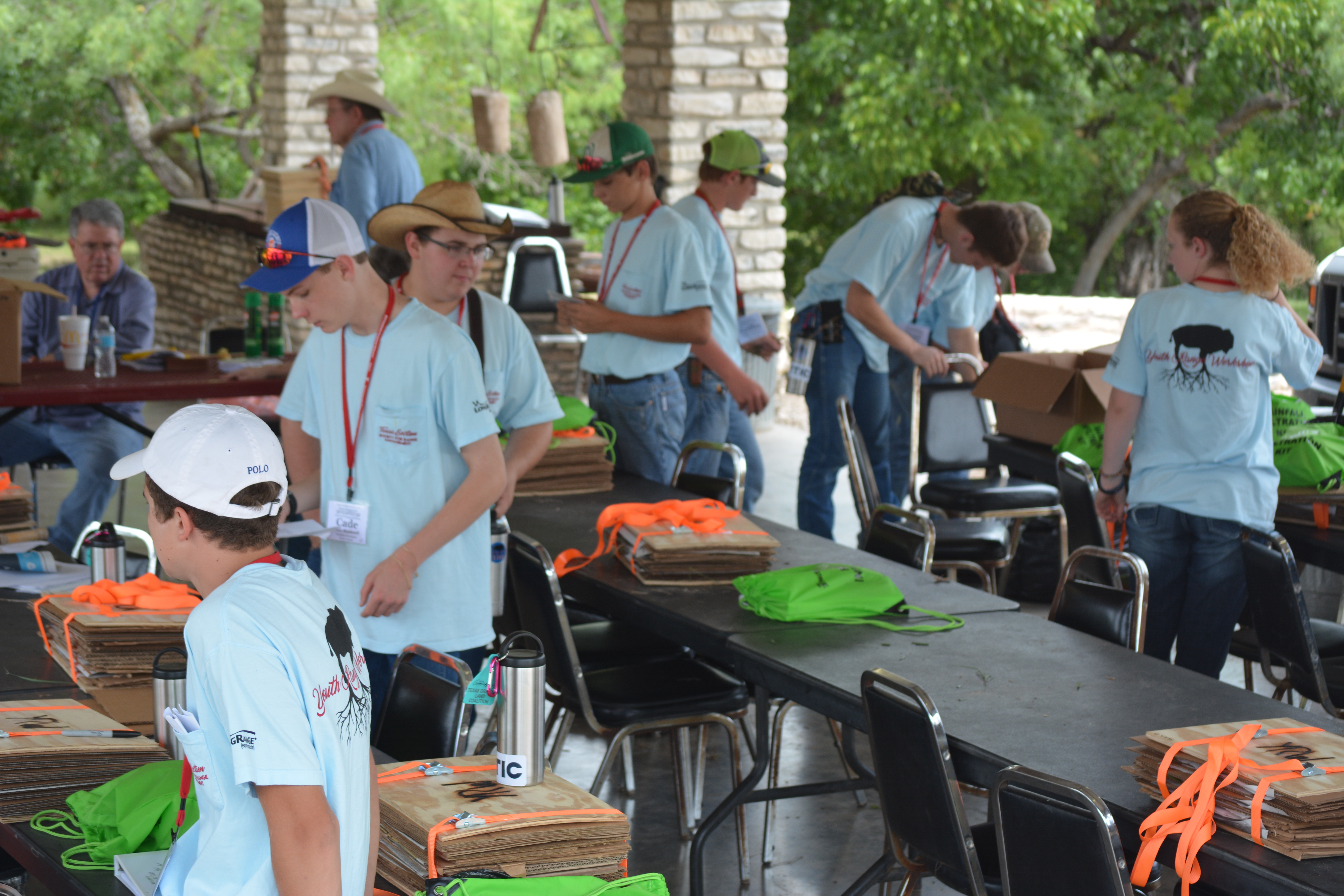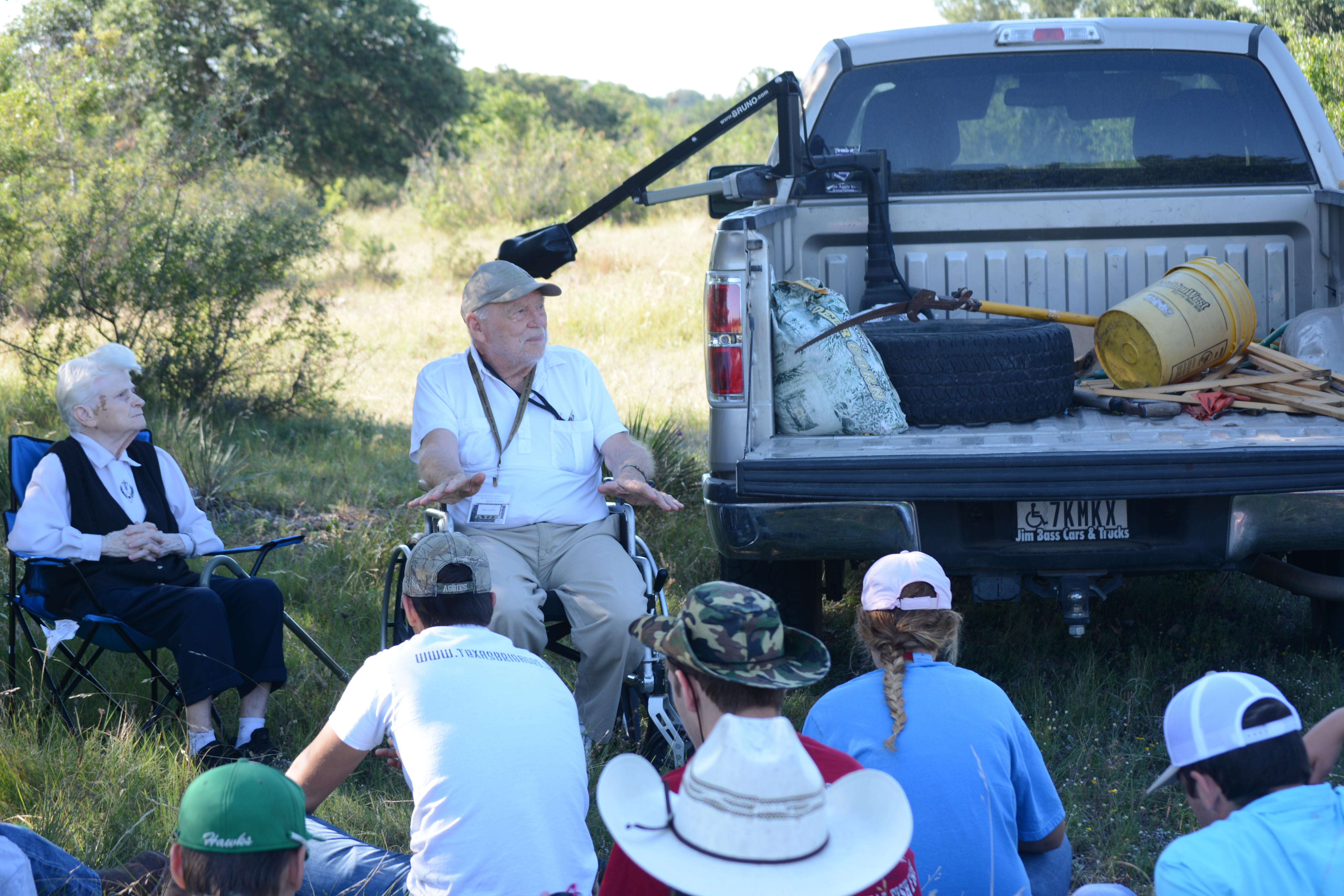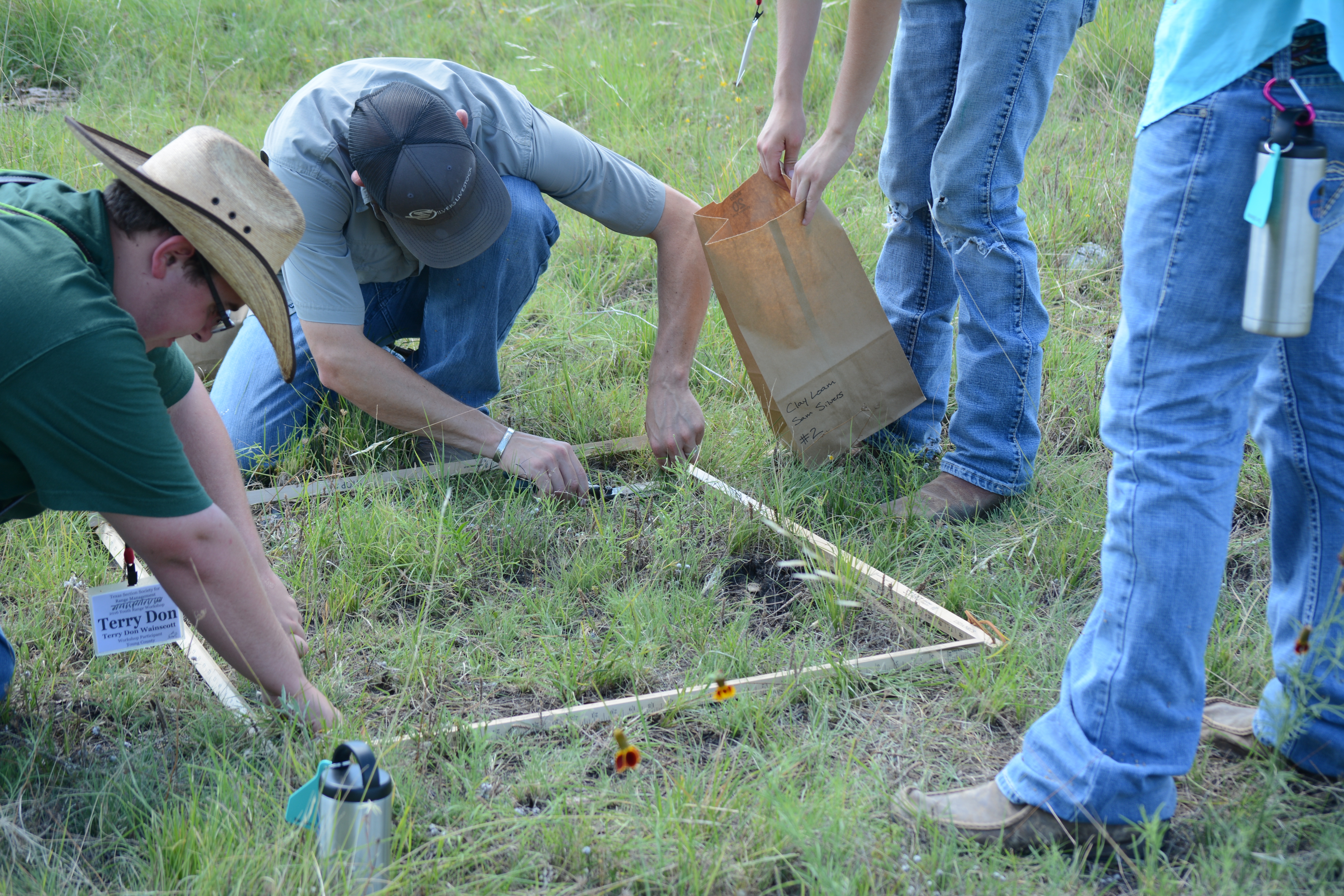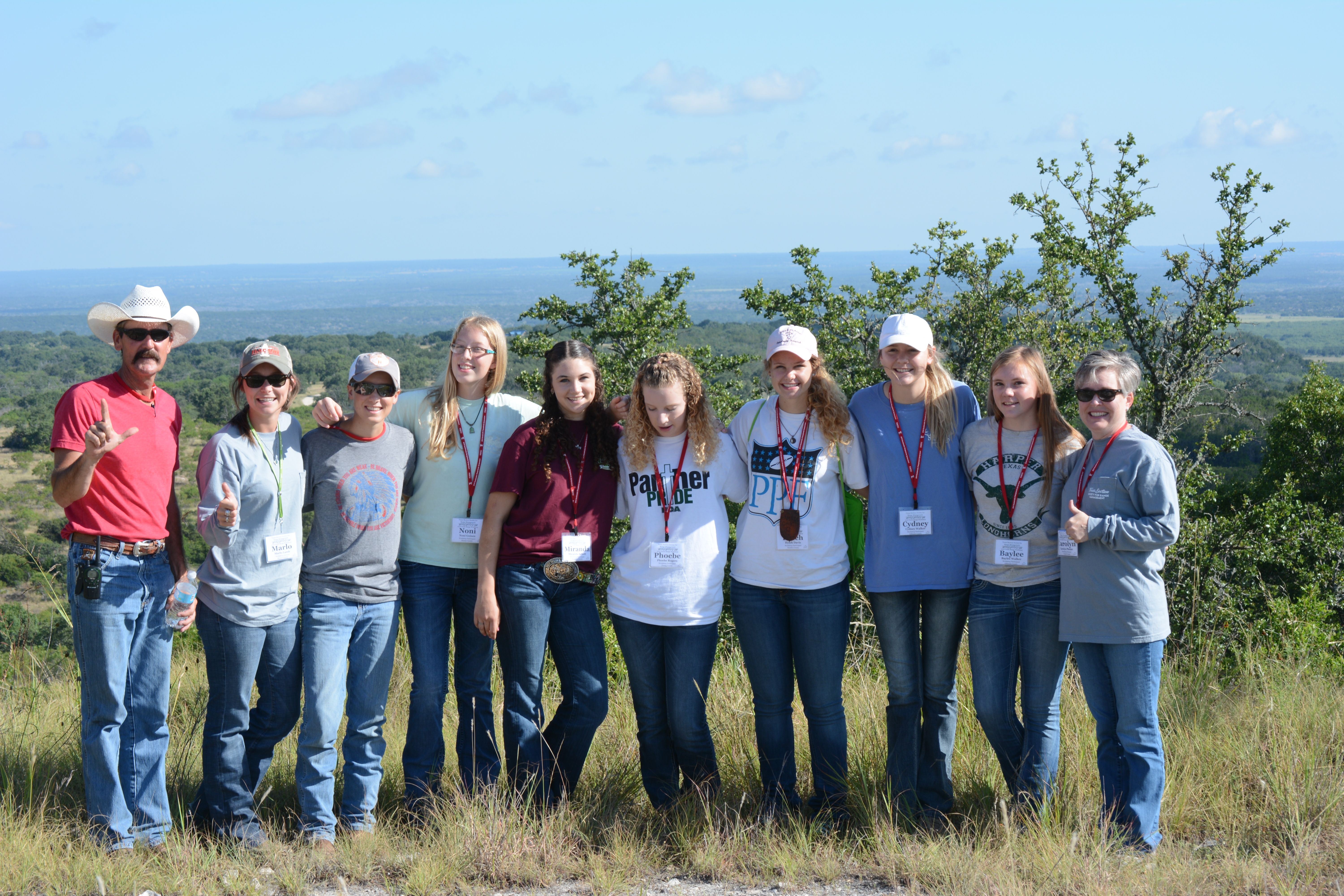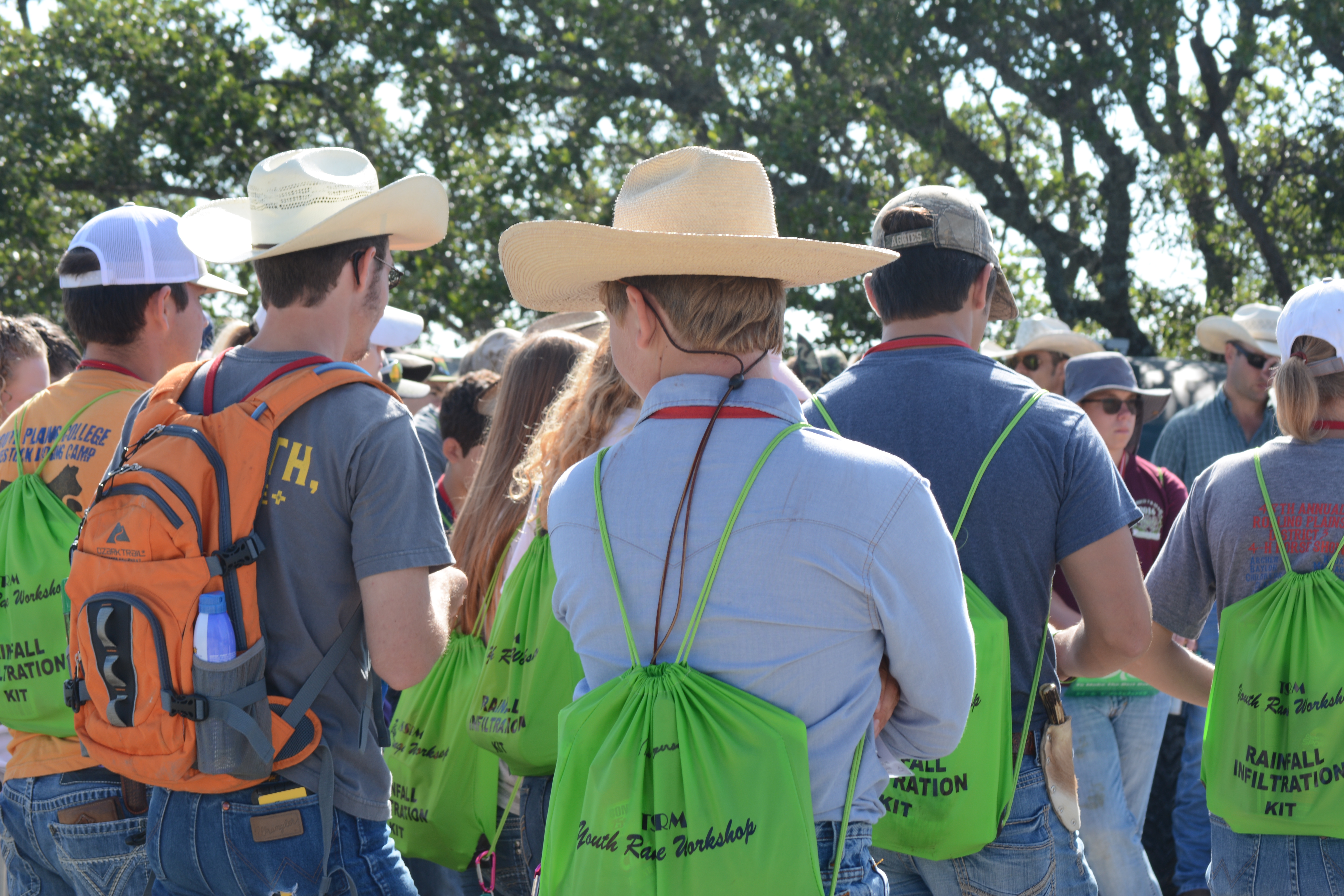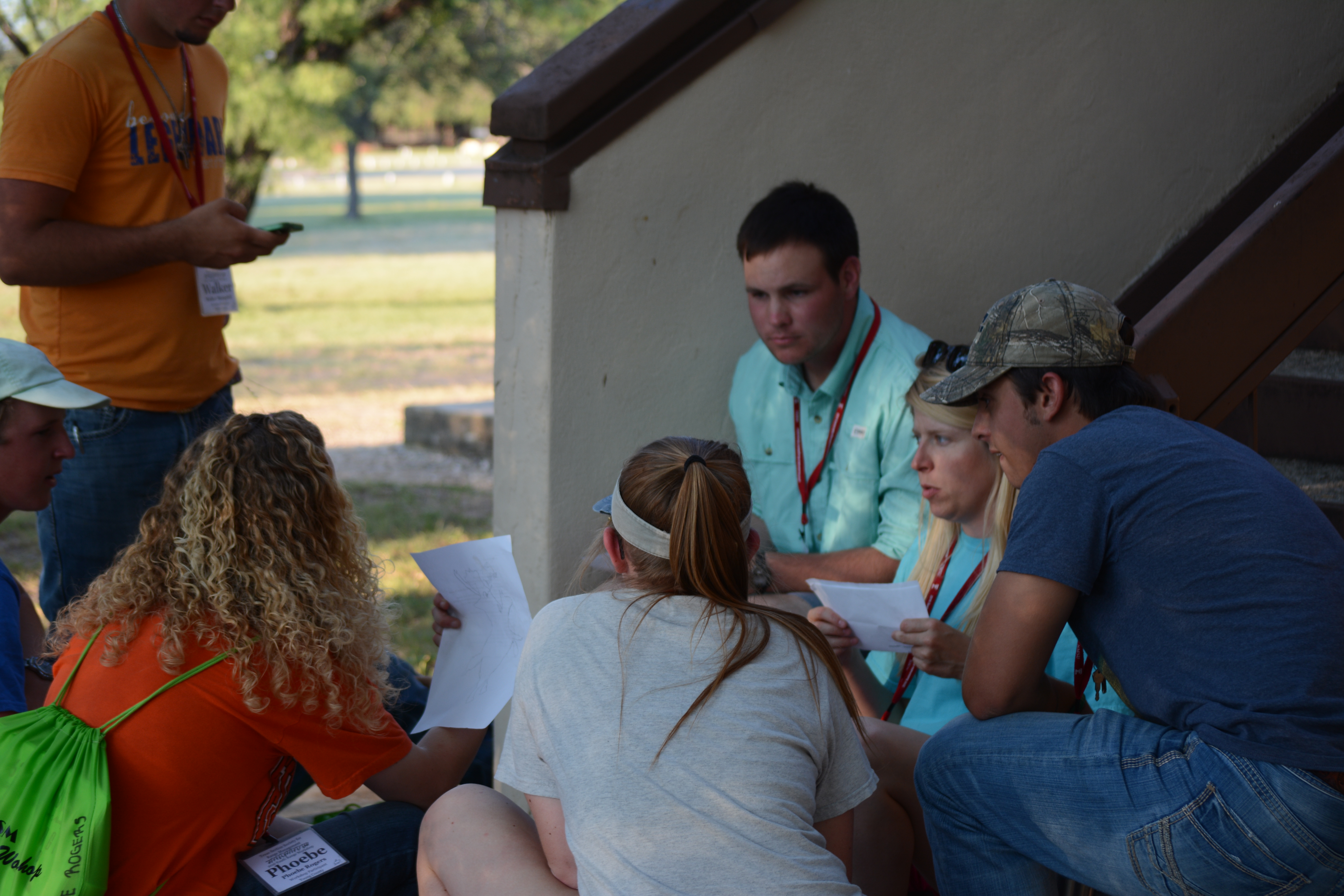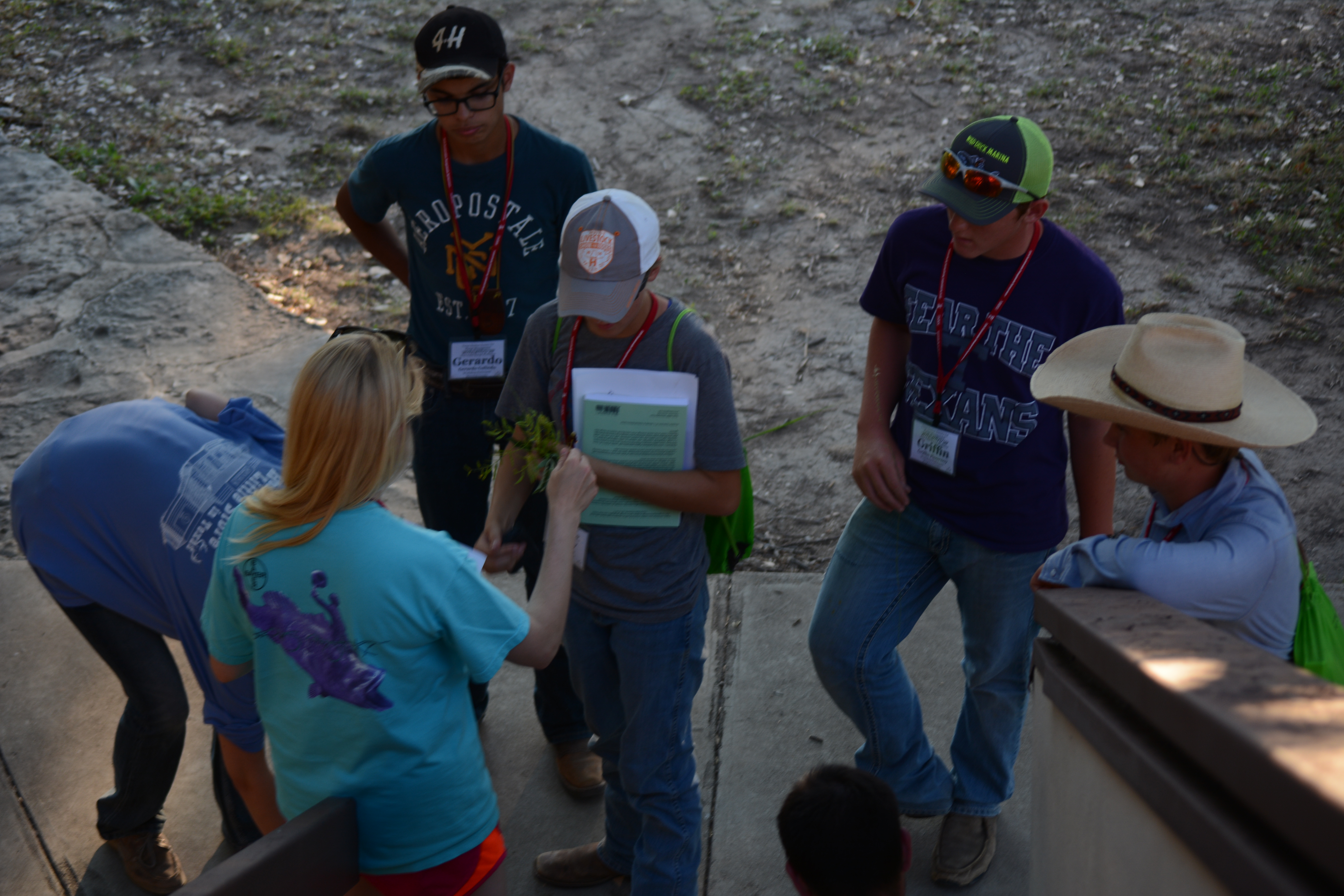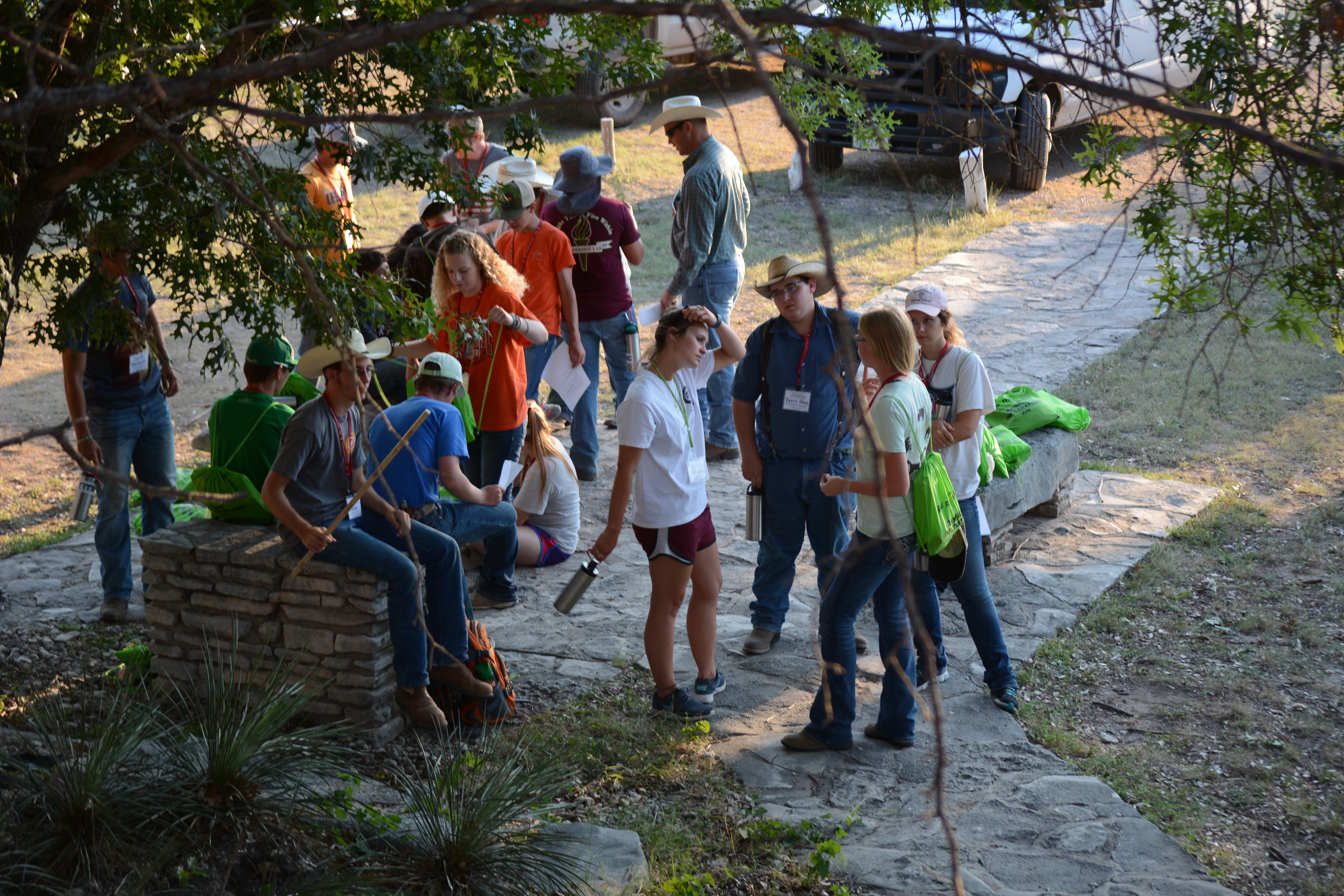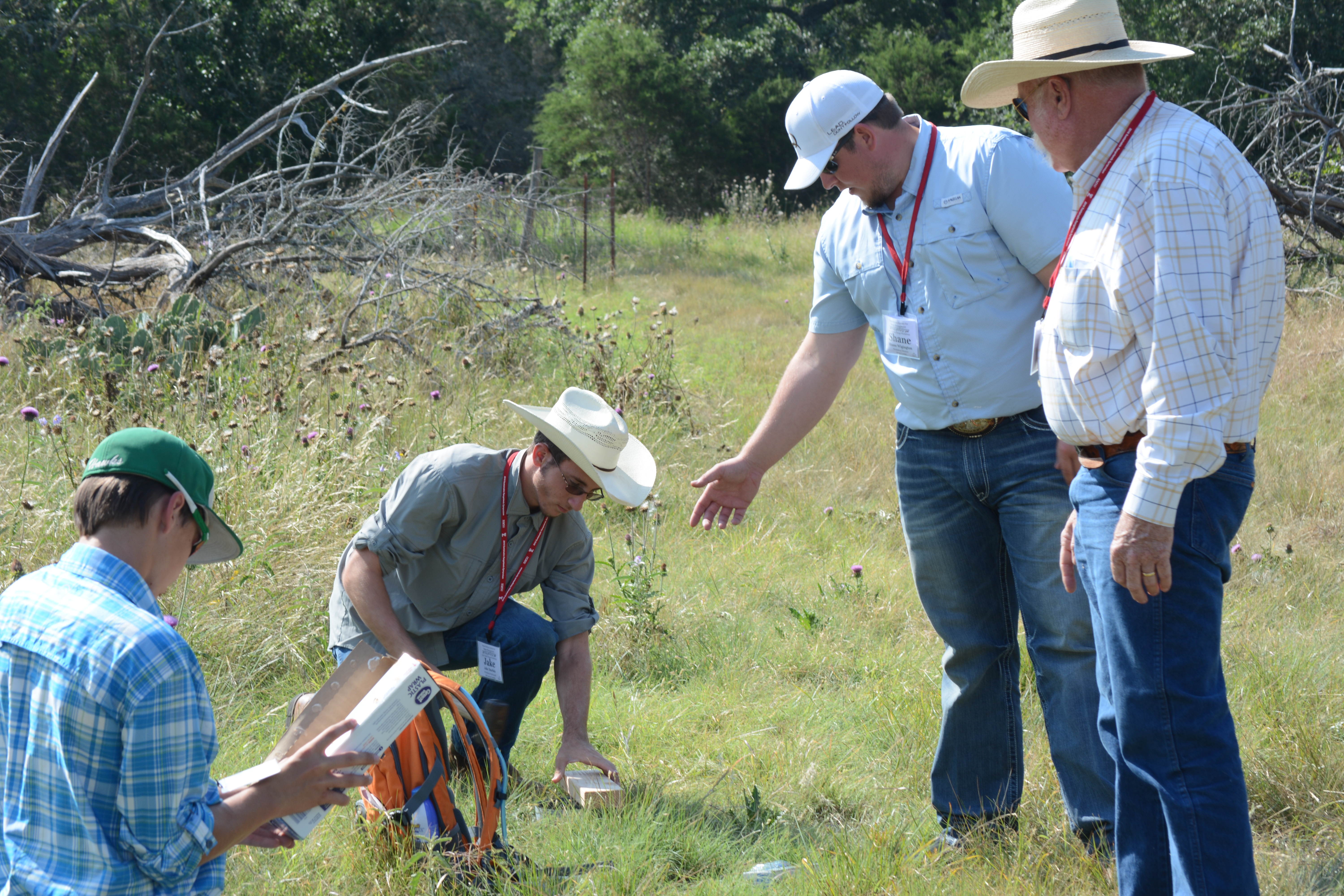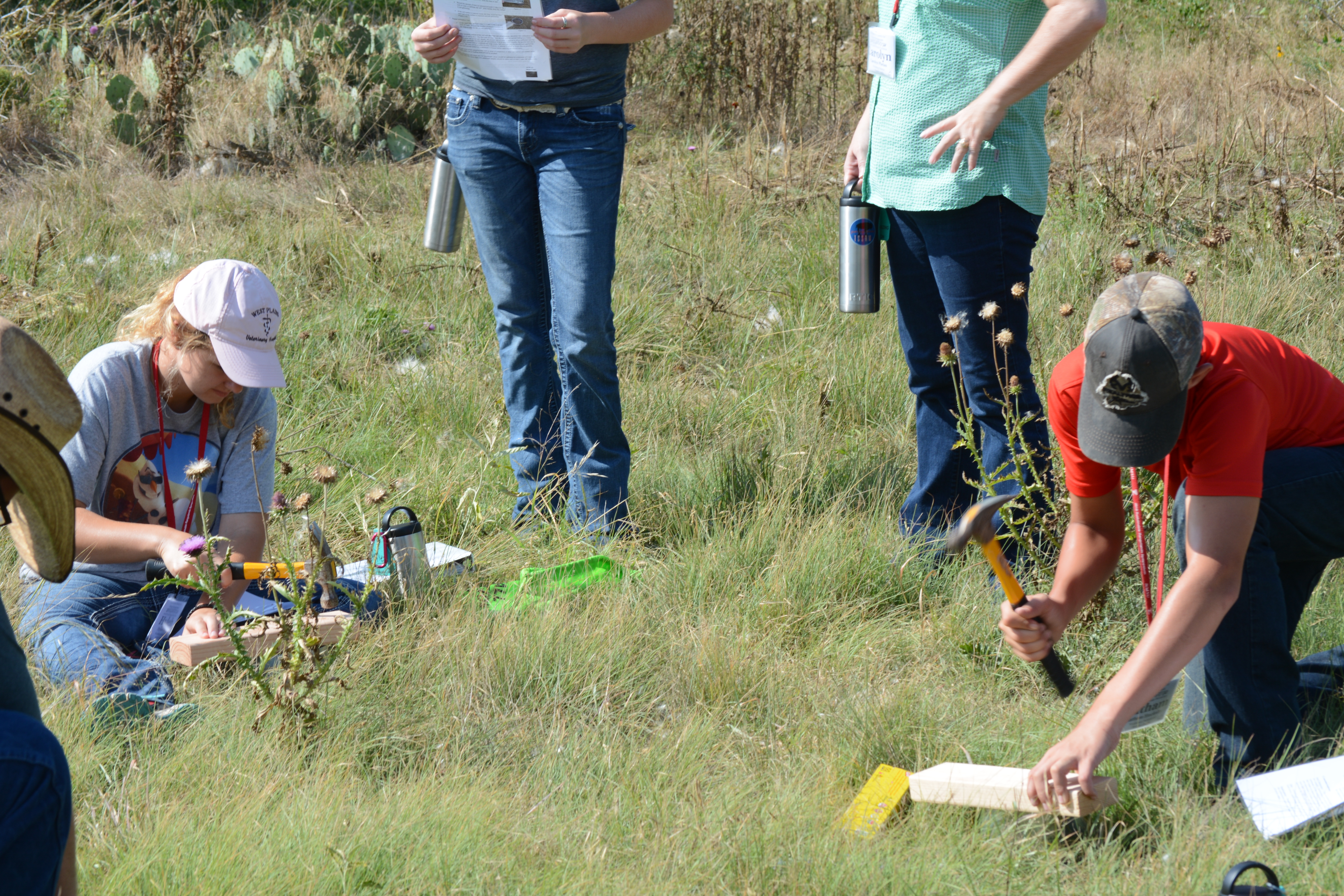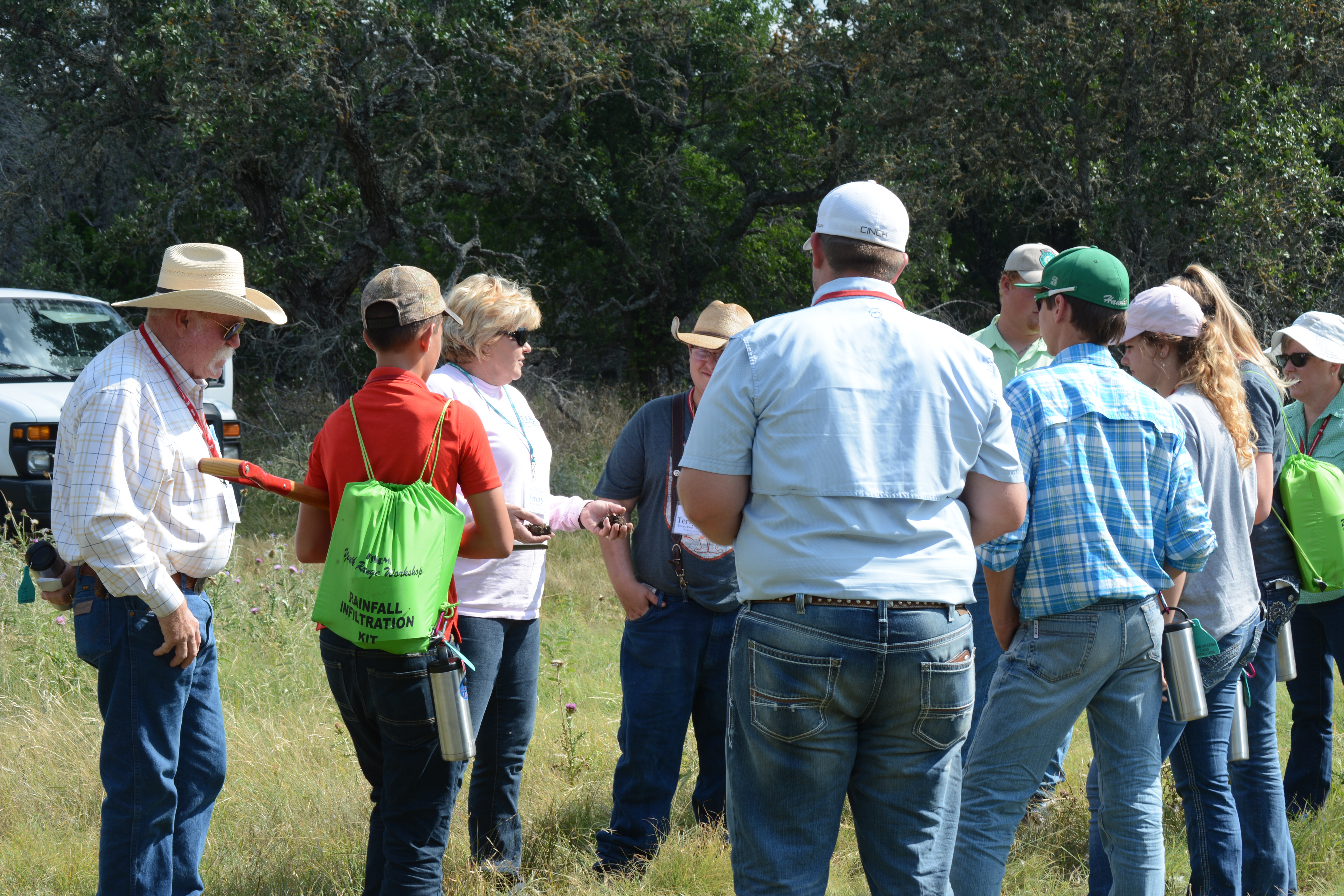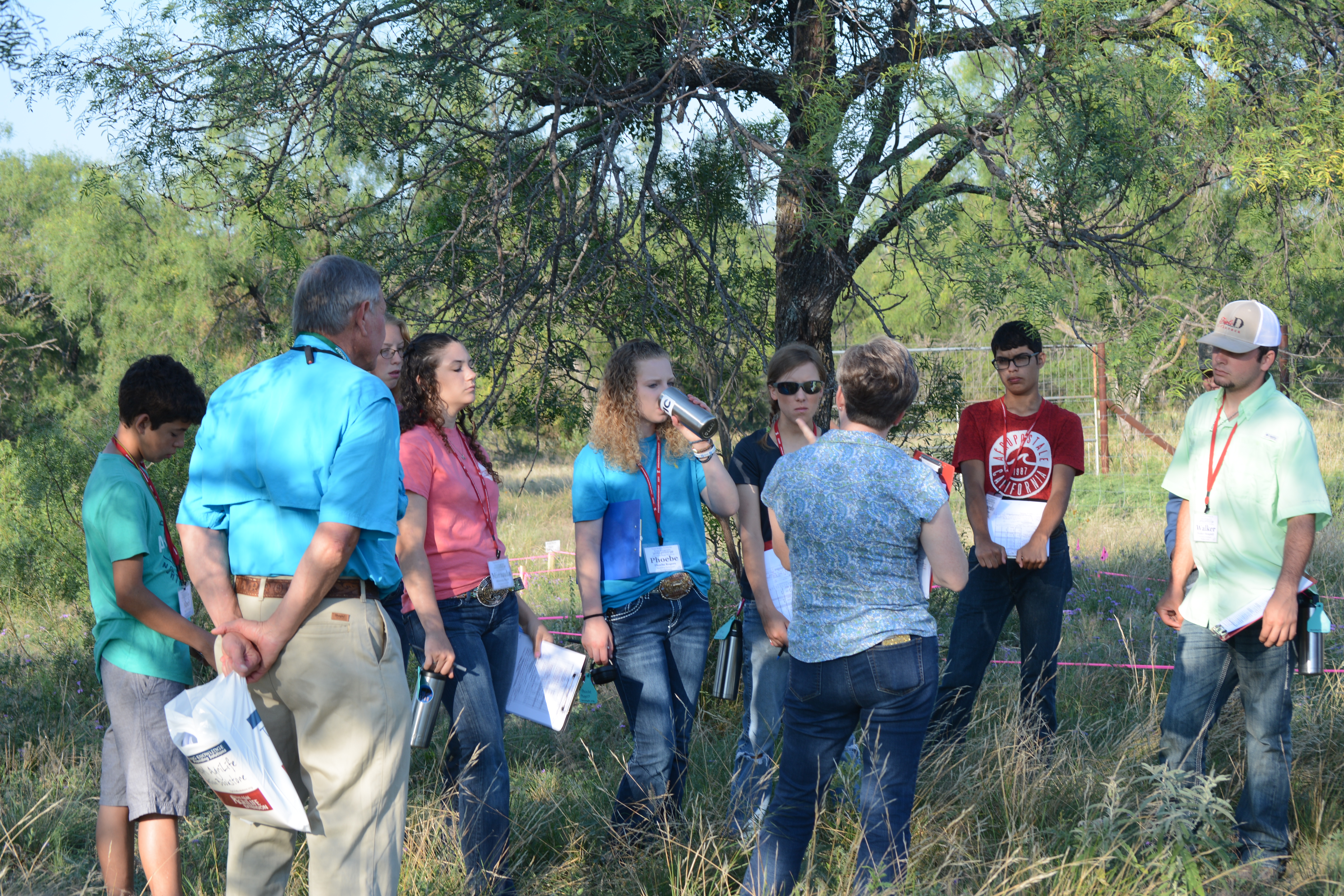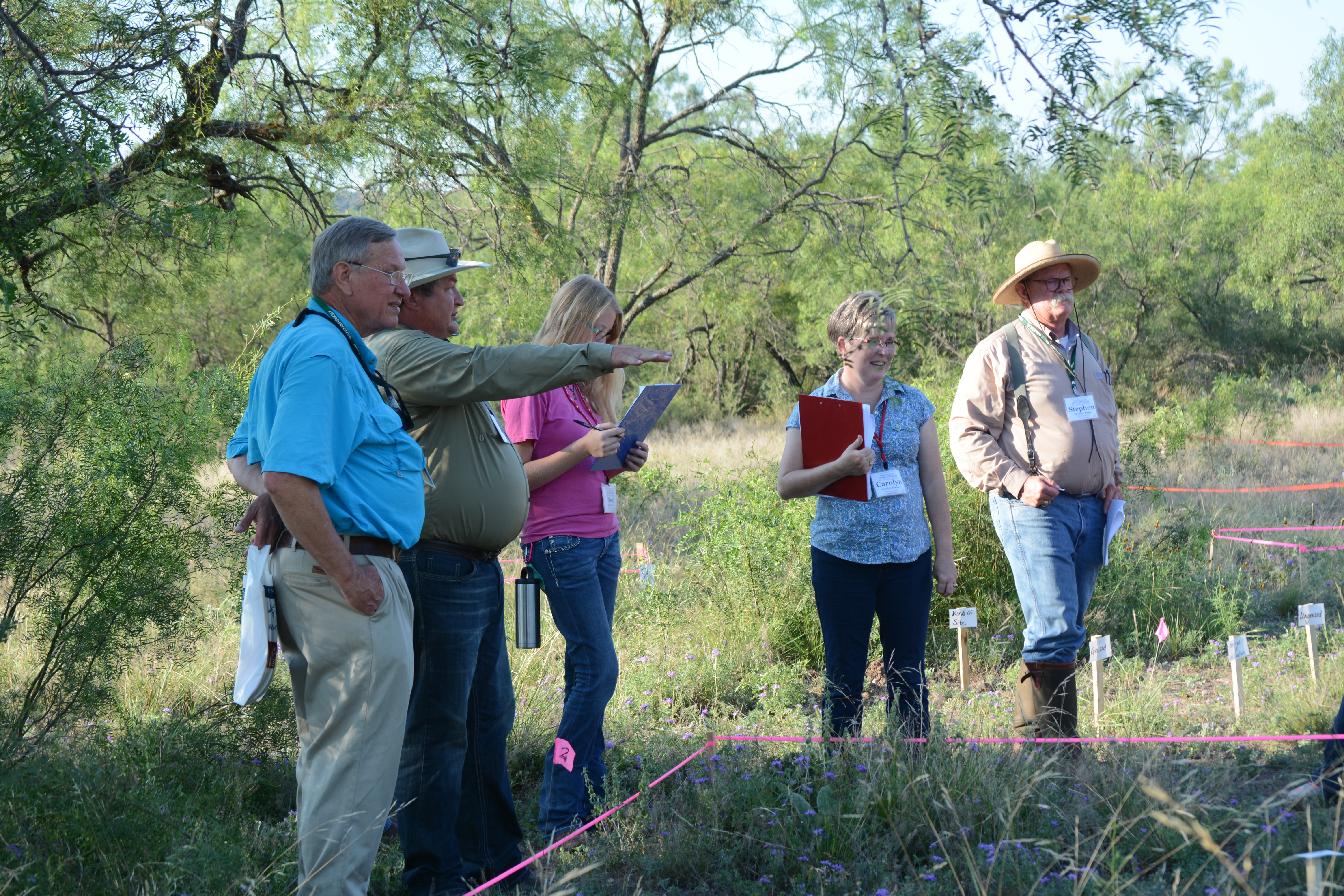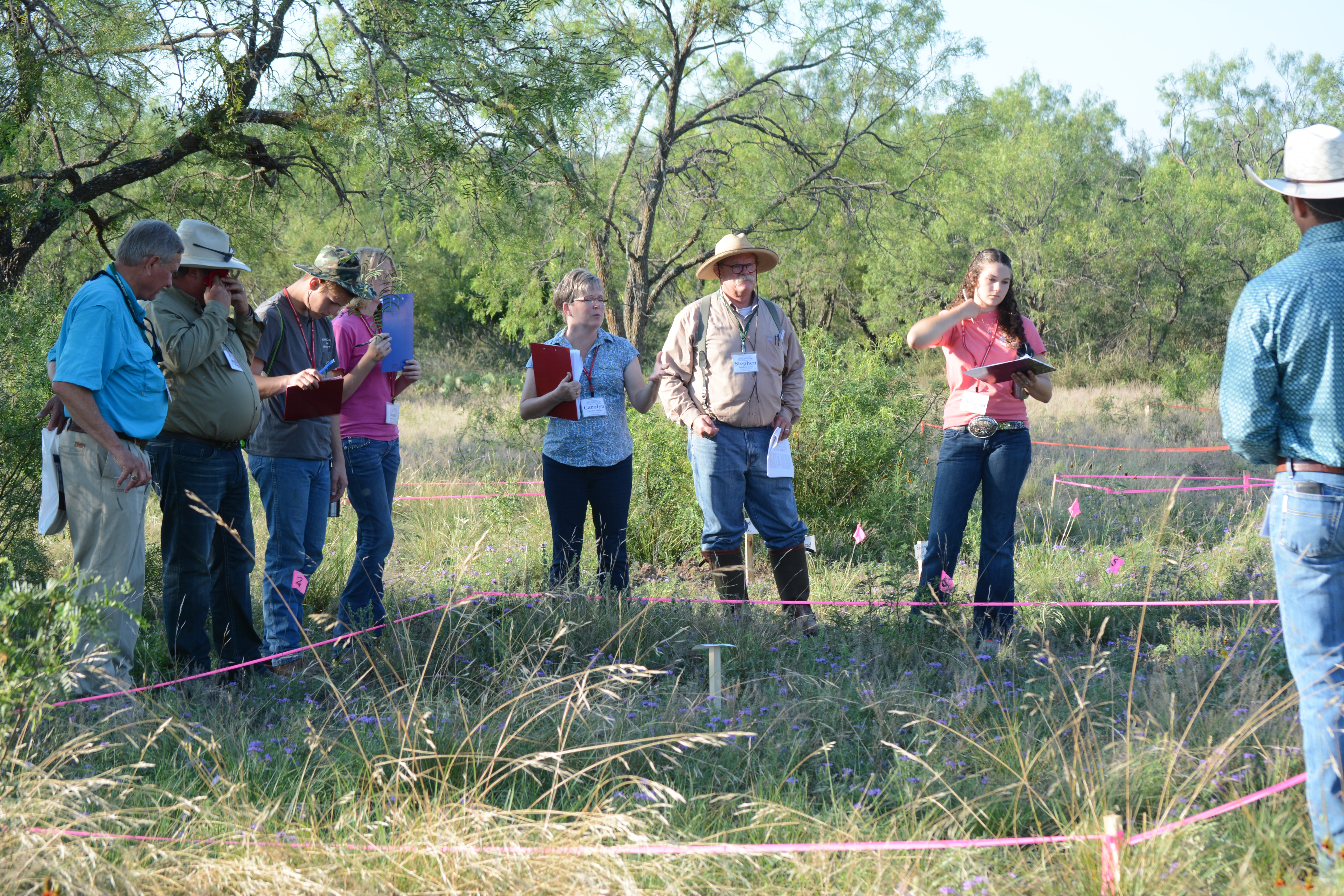Did you know that Texas 4-H has a Range Judging component? The AgriLife Extension Explore Handbook has everything you need to know and more on how to get involved in Texas 4-H Range Judging.
Why I Ranch…Ray Pfeuffer
I dedicated a series on West Texas ranchers called “Why I Ranch.” Each month I will highlight a rancher in West Texas and ask them to share their story about the ranch life.
Ray Pfeuffer
Ray and Sandra Pfeuffer make Ranch Life look easy. They have raised a beautiful family. They work hard. They are active in 4H. And, oh yea, they ranch in West Texas. Here is the other half to Ms. Sandra’s answers 🙂
How did you get your start in ranching? My family has always ranched, going back to the 1800’s. It was never our sole source of income, but I have done it my entire life.
How important is agriculture to your family? It is very important to all of us. All of my kids have grown up around it and love working with livestock. I feel I am doing something worth while, helping raise food for our country and other countries as well.
What makes ranching in West Texas so unique? The weather probably, but then again the weather is not normal anywhere, anymore. I like that multiple species can still be raised in most places, barring coyote problems.
Do you feel like there is enough emphasis on agriculture in K-12 education? It seems as if there is not. I believe society as a whole has gotten so far away from the land, they have no clue how food is produced.
Who did you learn the most from along the way? My dad, Billy Pfeuffer, my uncle, Franklin Pfeuffer, my grandpa Raymond Wersterfer and a neighbor growing up in Comal county, George Lackey.
Why I Ranch…Sandra Pfeuffer
Sandra Pfeuffer
Did you know that Texas female operators have increased approximately by 50% and the number of acres they manage by about 15% since 1997? For August we are featuring Sandra Pfeuffer. Sandra and her family ranch just outside of Christoval in Schleicher County. Her family is extremely active in 4-H and there isn’t much that this woman doesn’t do. As I am sure you could say about all women ranching and raising families in Texas – they do it all. Here is Sandra’s story…
How did you get your start in ranching? I have always been exposed to ranching because my Mom’s side of the family has always ranched. My mom married a carpenter and she stayed at home and raised 7 children, took care of the homestead and made sure we stayed active in 4-H and/or FFA when we were growing up. However, my actual start in ranching, was when I married my husband Ray in 1996. I was working at Tyson Foods in Seguin, Texas and he worked for his dad, who had an earth moving business, and ranched on the side. The Pfeuffer Family, like my mom’s family had been ranching since they immigrated to Texas. In 1999, my husband encouraged me to quit my job at Tyson to be a stay at home mom, aka full time ” Ranch wife”, I remember my boss telling me I was making the “biggest mistake of my life, you will never be happy as a rancher’s wife, you won’t be able to provide insurance for your family, you will never have enough, because every successful rancher had a wife who worked a “real job”, you will get bored.” I am glad, I took his advice with a grain of salt, and still decided to retire from my”real job” and begin my life as a rancher’s wife. Doing whatever my rancher husband, needed me to do. For the record, I am happy, we do have insurance, we usually have enough, I still work, just don’t get a paycheck, and I am hardly ever bored.
How important is agriculture to your family? Agriculture is our life, our income is totally dependent on agriculture. Agriculture has provided our children with valuable lessons and values, that we hope they will pass on to the next generation.
What makes ranching in West Texas so unique? I have always said “That being a rancher is like being a quail. Something is always after you.” You have to be vigilant and keep watch on the water, the weather, the predators, the market, the cows, the sheep, the goats, the horses, the fences, the bills, the tax collector, the list goes on and on. When you ranch, something is always going to happen that causes you to take two steps back, and you need to be ready, so when it happens you can quickly step forward again. We try to be very proactive controlling brush, Ray spends most of his time improving the land, we want to have as much grass as possible to make it through the drought. Being in West Texas is unique for many reasons. The weather, you never know what the weather is going to be like. Most days your praying for a rain, and then there will be that day when a massive cold front blew in overnight, it’s freezing, and your out fixing water gaps that got knocked down in the rain over night, using every ounce of strength, to try to stand up a fence gap with shit and everything else frozen on it, while trying to be thankful for the rain you just received. Definitely, have to be careful what you ask for in West Texas. Lightening, I have lived in four different areas of Texas, the lightening in West Texas is by far the most impressive, it can definitely have you gathering spray trailers and neighbors in a heart beat. But the most unique thing about ranching in West Texas is water. Most, West Texas ranches utilize well water, so water definitely determines what your day will be like.
Do you feel like there is enough emphasis on agriculture in K-12 education? NO! I don’t think children today realize how important agriculture is to our society. I am thankful for programs like the Extension Service and the Farm Bureau that are trying at the elementary levels. But, I would like to see more effort at the middle school and high school level when the kids are starting to actually think for themselves. We really need to impress on them the importance of agriculture and reinforce what we attempted to teach them in elementary school.
Who did you learn the most from along the way? My husband, he has been doing this his whole life. It is what he does and what he is good at. He has trained the kids and I well.
Why I Ranch…Dr. Jake Landers
Dr. Jake Landers
After a 30-year career with Extension, I hope I have half the brains, sanity, and passion that my dear friend and colleague, Dr. Jake Landers possesses. Dr. Landers set the bar pretty dang high and it is an honor to learn from him in the pasture and in the classroom. As I said in an earlier post, Dr. Landers morphed into a Range Father of mine overnight. The second I met him he was my hero.
Dr. Jake Landers served as an Extension Range Specialist at the Texas A & M Research and Extension Center, San Angelo in 1979. He developed techniques and procedure for individual plant treatment of brush and prickly pear cactus for ranchers in 17 counties. He initiated prescribed burning as a procedure for managing rangeland to reduce undesirable species and stimulate grasses. He wrote short articles for newspapers and magazines and continued writing after his retirement from the Extension Service. He was recognized as the outstanding person in Range by the Texas Section of the Society for Range Management in 1990 and Sustained Lifetime Achievement Award by the parent society in 2016.
Jake described himself as a gentleman rancher at best, but I beg to differ. His Dad was in full charge until Jake was 60, and his brother Fritz assumed the duties until they divided up 20 years later. Since then Dr. Landers has helped decide when and where to graze and when and where to burn, control mesquite and pricklypear. Dr. Landers is not trying to make a profit, but he is still learning and operating by experiment. Most of which I am convinced is adaptive management, but Jake makes it look so dang easy, fun, and effortless that it is more stewardship than anything.
How did you get your start in ranching? I learned a lot about raising sheep, goats and cattle growing up on the ranch until I was 18. I had intended to get a degree and come home to ranch. But the drought and other interests kept me in school until I was independent of making a living on the ranch.
How important is agriculture to your family? Agriculture was important growing up because it was 95% of our income. Now it is important as an enjoyable experimental hobby.
What makes ranching in West Texas so unique? Speaking more of the Edwards Plateau, the mix of vegetation allows raising of cattle sheep and goats while keeping a viable white tailed deer herd for hunting.
Do you feel like there is enough emphasis on agriculture in K-12 education? Not in the least. My experience with teachers in conservation workshops indicates that most do not have an adequate background in agriculture to provide the information.
Who did you learn the most from along the way? I learned about plants mostly on my own. I learned a lot working on programs with county agents and a lot about burning from Larry White, Range Extension Specialist at Uvalde.
Meet a County Extension Agent – Michael Palmer Coleman County
Since working with Texas A&M AgriLife Extension Service, I have been in awe of our County Extension Agents. Most often their hours align with famer’s hours – sunrise to sunset (and if they are between those times, red bull drinks are always in their hands). They love their community, they love agriculture, and they love the people that embody both of those things. They are the heartbeat of Texas agriculture. What they do for their job, how they do their job, where they do their job absolutely amazes me. That said, I wanted to learn more about our County Extension Agents – I wanted to learn why they do this job.
I have started a new blog series called “Meet a County Extension Agent” and I hope you enjoy getting to meet these incredible folks as much as I have.
Our October issue features Michael Palmer, Coleman County Extension Agent. Mr. Palmer is a one-of-a-kind agent, and in my opinion he just gets it. He is open-minded, willing to learn, willing to work hard, and makes everybody feel like they are contributing toward a bigger purpose.
Meet Mr. Michael Palmer:
Why did you become a County Extension Agent? I have always had an interest in agriculture and have been involved in farming and livestock operations with my family since childhood. I knew I wanted a career in agriculture and the opportunities that Extension offers only enhance the desire to be involved in agriculture. I like the diversity that being a county Extension agent offers; things are always changing.
What are some concerns specific to agriculture in your county? Coleman County is a diverse county made up of range and pasture, as well as cultivated land. Agriculture is a key industry here. Many producers continually conduct brush control, as it is a never-ending issue with undesirable and invasive plants. Predator control is another issue landowners face; specifically wild hogs. Coleman County has a large number of sheep and goat producers who, along with the wildlife industry, face challenges with predation caused by coyotes and bobcats. Many farmers are currently facing challenges with low wheat prices and high input costs. Alternative crops have been looked at but no silver bullet has been found.
What is the most rewarding part of your position? Being able to make a positive difference within the communities where I live and work; and make a difference in the relationships I develop with the people of the counties I have worked in the past 19 years.
What is the weirdest request you have ever received as a CEA and how did you solve it? It would be hard to narrow down to only one request, but I have had several requests over the years that were “odd”. That’s what I like about being a county Extension agent; you never know what the day holds or what the questions will be.
If you could be anything else, what would you be? I don’t know that I would change what I do because a career as a county Extension agent is more of a lifestyle than a job. I get to combine the work I do with my hobbies/interests and am always garnering knowledge that I’m able to apply to each.
Thank you Mr. Palmer for all you do! We are grateful to have you!
Texas Section Society for Range Management Youth Range Workshop
From June 26th – July 1st, I had the privilege of meeting some pretty cool kids. Not just any kids…RANGE KIDS! At Range Camp, 25 youth from 8th-12th grade learned about prescribed burning, stocking rates, grazing management, brush control, public speaking, and most importantly, STEWARDSHIP. This fine group of kids blew me away with the yes ma’ams, no ma’ams, and a special creativity and magic that only kids possess. Range Camp is always hectic, always moving, and with very little sleep so it’s not something I get super excited for, but this year’s kids went above and beyond to make it a memorable experience for the directors, TSSRM leaders, and for one another. I am pleased to announce that even though our society and this generation is driven by technology, social media, name-brands, and a urbanized way of life, for one week at Range Camp, the world paused and we remembered that our job is to be stewards. Stewards of the land and stewards for the youth.
Virgil Epperson and Franklin Buchholz…you two were my favorites. Remember what you learned. And definitely remember how to carry a drip torch.
5 Thing I Loved about the Eldorado-Divide Range Contest April 16, 2016
Last Saturday I had the pleasure of watching our District 6 and 7 4-H’ers complete the Range Contest in Eldorado, Texas. These kids represent the very best of the best and as I watched them calculate stocking rates, forage production, and identify range plants I realized that I am so very blessed to learn from them. I had the time of my life last Saturday because they #1) actively pursue learning about rangelands EVEN ON SATURDAY, #2) take pride in agriculture, livestock, and ranching, #3) are some of THEE most polite and well-mannered kids I have ever been around, #4) keep me on my A-Game, these kiddos are sharp, stubborn, and smart and they are not afraid to stand up for what they believe, and #5) reminded me why I am a Range Specialist 🙂
I encourage all of you to get your kids, grandkids, nieces, nephews, pretty much all kids, into a 4-H program and point them the direction of Rangeland Management, because we all know it starts in the pastures!
Congratulations to all the winners! We will see you all again in Ozona on May 21st and Junction April 27th!
Texas Section Society for Range Management YOUTH RANGE WORKSHOP
Our Texas Section Society for Range Management 62nd Youth Range Workshop will be June 26 – July 1, 2016 at the Texas Tech University Campus in Junction, TX. This is a very exciting opportunity for our Texas youth (14-18 years old, completed 8th grade, but have not graduated high school)!
At the workshop, participants will gain knowledge and skills in ecology, range inventory, range management, and evaluation of resources. More importantly, we teach public speaking, advocacy, and leadership skills so that each student is equipped with the knowledge to effectively educate others on the importance of rangeland management. I encourage you to forward the application and flyer to any youth that might be interested in learning more about stewardship of our natural resources. Applications can be found here. More information YRW 2016 flyer.
